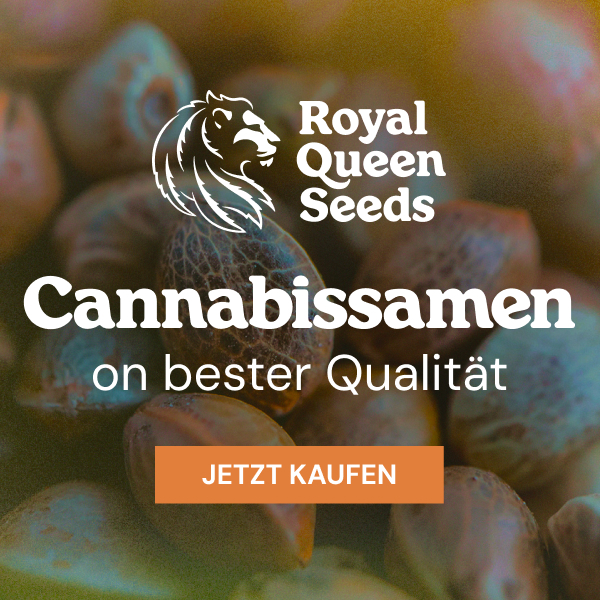Chin
gezüchtet von The Landrace TeamHier gibt es alle Infos zu Chin von The Landrace Team. Wenn Du nach Informationen zu Chin von The Landrace Team suchst, schaue Dir unsere an: Grundlegende Informationen, Galerie, Rau(s)ch-Bericht, Cannabis-Cups, Steckbriefe, Sorten-Vergleich, Abstammung / Genealogie, Hybriden / Kreuzungen, Rezensionen der Benutzer, Informiere Dich hier auf dieser Seite über diese Cannabissorte und folge den Links, um noch mehr Informationen zu erhalten. Wenn du selber persönliche Erfahrungen mit dem Anbau oder Konsum dieser Cannabissorte hast - bitte benutze doch unsere Links hochladen um diese auch Anderen zugänglich zu machen!
Grundlegende Informationen
Chin is an Sativa from The Landrace Team und kann indoor, outdoor und Gewächshaus angebaut werden (Wobei die Pflanzen eine Blütezeit von ±91 benötigen) The Landrace Team ist Chin ist/war nie als feminisierte Samen erhältlich.
The Landrace Team Beschreibung
Genetics: Myanmar (Chin state)
Sourcing: private donor
Latitude: 23°N
Elevation: 1500 m.a.s.l
Regional harvest: December to February
Height: 3 metres
Vegetative: 12,14,16 weeks
Flowering: 12 to 14 weeks
Aromas: Mint,tangerine peels,earth,green tomatoes,acid,wood,Jesuit’s tea,creamy
Taste: mild woody
Effects: long-lasting, meditartiv and psychoactive,euphoric,joyful,laughing,energizing
Phenotypes: 5 (2 small and 3 tall)
Grow type: outdoors, greenhouse, indoors
Characteristics: Resistant to humidty,pests and extreme conditions.Spiky,resinous,airy buds. Some will display reddish hues
The plants of Myanmar from the Chin Province have peculiar structures and aromas, most of their phenotypes grow irregularly and very spiky with intense aromasl of green tomatoes, sour, acid, and some disgusting sweetness, their organoleptic characteristics make it unmistakable as well as their vigour.
These plants grow pretty wild and with irregular structures with scattered foliage in most of their phenotypes.Others are conical in shape, very slender, stylized and fine. The spikiest and most irregular phenotypes have usually 3 leaflets and some 5. The plants with conical structure and symmetrical in shape have 7 and 9 leaflets with large and narrow leaves, wide internodal spaces, stems of a medium radius with a dull red color in some phenotypes.
There are two phenotypes that grow small with less leale as opposed to the bigger, more irregular and more symmetrical plants. Their structure is in the shape of a tower with some branches at the bottom but in general a main tower with little foliage.
The Males of these plants from the Chin province in Myanmar reach heights of up to 3 metres and a half. The females reach heights of up to 280 centimetres in optimal conditions. The flowering of these beautiful plants is spiky with a medium high production in some phenotypes with hard-to-find aromas and so accentuated,
In the shorter phenotypes the flowers are more resinous and abundant with a higher production than the one in the slender and tall ones; aromas of mint, earth, tangerine peels, sour, acid, wood. The smell that we found more recurrent is the one of green tomato, a little disgusting. Loose airy flowers with beautiful tails full of calyxes. The resin gives off very peculiar and unmistakable aromas. High resistance to humidity, pests and extreme conditions, whether hot or cold and extreme air currents.
These plants demand very little amount of nutrients, we have seen them planted in very dry clay soils with poor drainage quality and scarcity of nutrients in the soil itself and yet the plants are big and thrive.
Mild woody flavor with a long-lasting meditative and psychoactive effect, euphoric, joyful, laughing, intense and energizing. Recommended for breeding programs and collectors that preserve Asian sativas with unusual profiles and peculiarities that are gradually becoming harder to find.
With these beautiful plants from Myanmar and all the other varieties we offer as much genetic diversity as possible to make them available with a complete and very diverse open range to be explored for the purposes and tastes that each one needs. We do not limit the genetics to our tastes and only to some phenotypic expressions, on the contrary, we strive to have the greatest possible diversity because it is of great importance to have a genetics with a great diversity to explore as is the case for these plants since they provide us with a unique and interesting terpenic profile as well as the vigour and strength that these plants show when growing which indicates that this is a line with great potential worth to be explored.
Chin Sortensteckbriefe
Chin Rau(s)ch-Bericht
Wirkung/Wirksamkeit
Geruch / Aroma
Schmecken
Chin Galerie
Bis jetzt wurden keine Bilder hochgeladen. Klicken Sie auf here, um welche hochzuladen.Chin Vergleiche
Wie wächst und wirkt Chin im Vergleich zu anderen Sorten? 0 Seedfinder-Nutzer haben direkte Vergleiche mit The Landrace Team's Chin hochgeladen und diese Cannabissorte mit 0 anderen Sorten verglichen.
The Landrace Team Chin:Chin Abstammung / Genealogie
Map of the Chin Fagmily Tree
Click to show all parents of Chin in our dynamische Stammbaumkarte.
Chin Hybriden & Kreuzungen
Wir haben 0 direkte Nachkommen von The Landrace Team in der Seedfinder-Datenbank gefunden, hier eine kurze Übersicht. Um alle Hybriden und ihre Nachkommen zu sehen, besuche bitte unsere Chin Genealogie-Seite und schau Dir alle direkten Nachkommen an, die Kreuzungen - und alle nachfolgenden Generationen.
Chin Benutzerkommentare
Alles in Allem haben wir 0 über The Landrace Team zusammengetragen.Leider ist keiner dieser Kommentare in de!
Lade hier deine Infos zu dieser Sorte hoch:
Besitzt du weitere Informationen zu The Landrace Team aus erster Hand? Dann hilf beim Ausbau des SeedFinders und lade deine Informationen hoch - der nächste Grower auf der Suche nach Input zu The Landrace Team wird's dir Danken!
Bilder
Bilder sagen mehr als Worte! Lade hier Deine „Chin“-Fotos hoch und hilf anderen Züchtern, einen besseren Eindruck von dieser Sorte zu bekommen.Sortenvergleiche
Chin VS. Formular zum direkten Vergleich der SortenSorten Steckbriefe
Unsere Sortenbewertungen sind mehrsprachig, durchsuchbar und können sehr detailliert sein – einschließlich Daten zu Anbau, Aroma, Wirkung und Geschmack! Bitte Lade hier Deine Chin-Bewertung hoch, um den anderen Seedfinder-Benutzern zu helfen!
Medizinisches
Du hast Erfahrung mit den medizinischen Eigenschaften von Chin? Gib hier Deine Informationen weiter kann vielleicht anderen Menschen helfen!
Threads
Du bist in einem Forum oder einer Grower-Community auf einen Chin-bezogenen Thread gestoßen? Füge es hier hinzu und ermöglichst anderen Benutzern, diese Informationen schnell und einfach zu finden!
Videos
Du hast auf YouTube ein entsprechendes Video mit zusätzlichen Informationen oder Grow-Infos zu Chin gefunden? Bitte hier hinzufügen zur Sorten-Infoseite!



